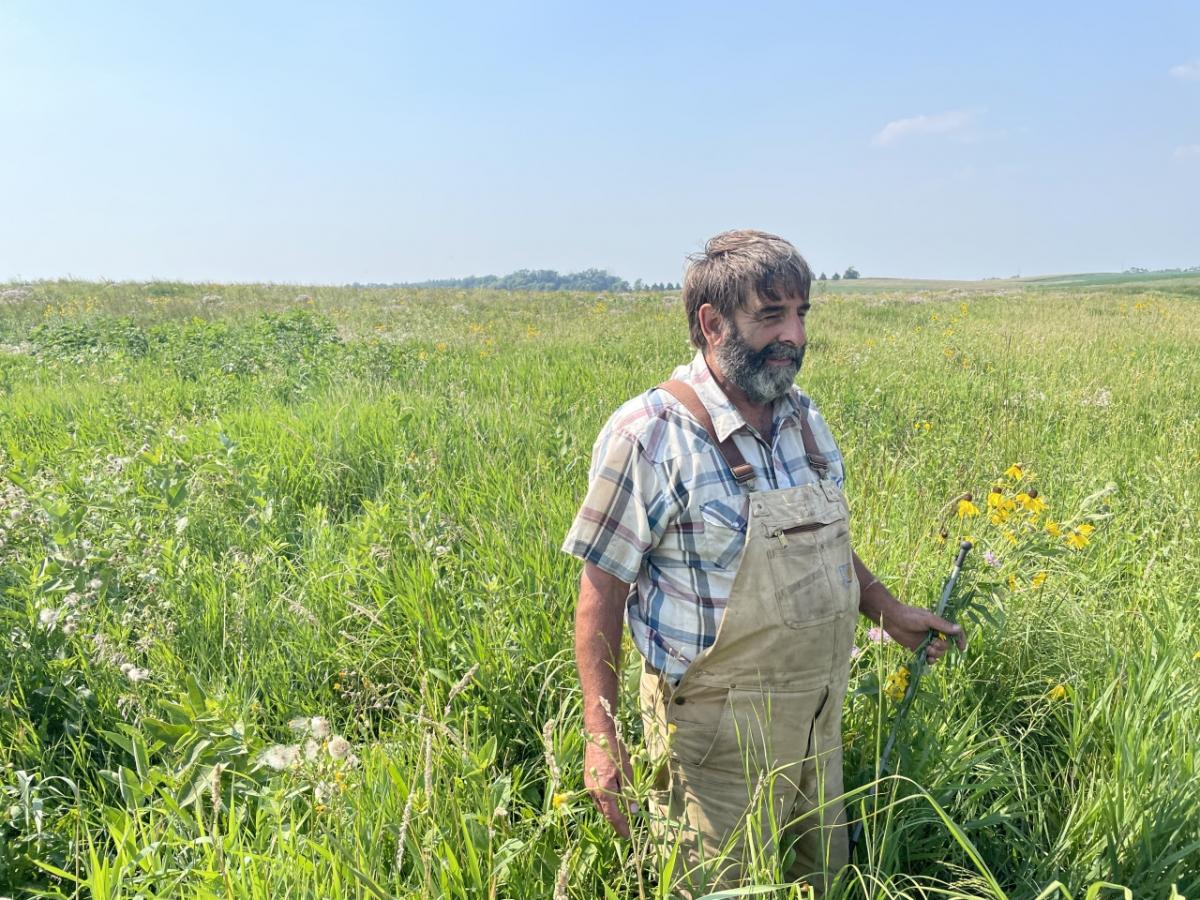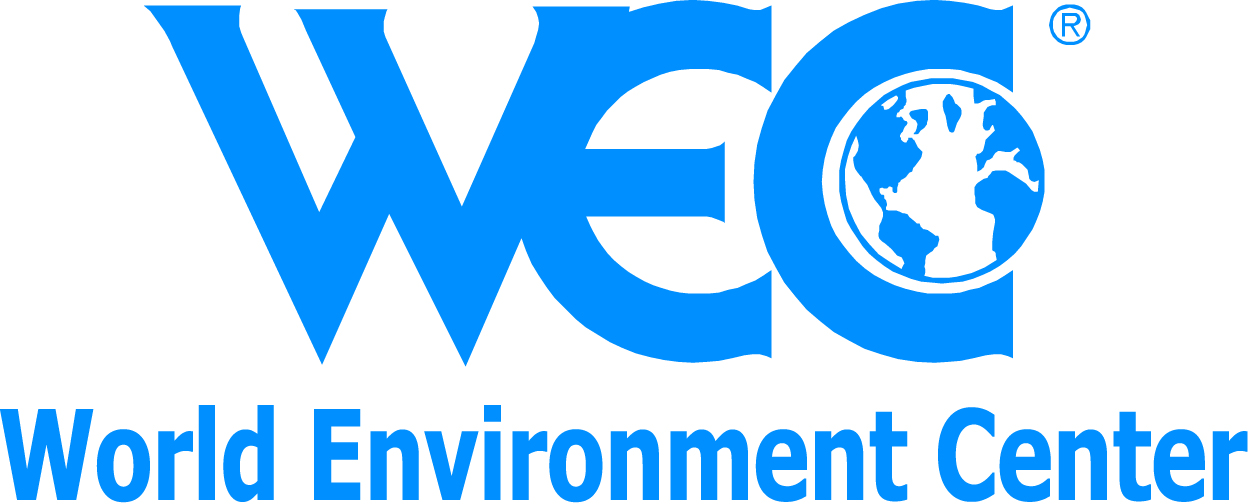Nature Is Calling - The Business Case for Resilience

In late July, as wildfires and drought raged across the western United States, I paid a visit to my family’s farm in western Minnesota. The land has been in our family for 150 years – ever since my great-grandparents emigrated from Norway in the late 1800s and settled on a tall grass prairie that decades earlier had been taken from the indigenous Dakota people.
As we neared the farm, smoke from wildfires in the northern boundary waters formed a milky haze on the horizon. “Welcome to Boss Ridge Farm,” said Mark Erickson, who farms our land and neighboring properties. “Boss” refers to Bos taurus, the beef cattle that he raises, and “ridge” to the Continental Divide that drains one side of our land to the Mississippi River and Gulf of Mexico and the other to the Red River and Hudson’s Bay.
Mark is a pioneer in regenerative agriculture. With holistic management, he is restoring the native grasslands and healthy soils that my family and our neighbors unwittingly degraded over a century of conventional farming. In Mark’s words, he aims to “create balance between the way God created it and what man needs to live well.”
In a summer of climate catastrophes, Mark’s philosophy is an inspiration. In the past few months, floods, droughts, heatwaves, wildfires, and other natural disasters have devastated communities around the world. The haze we experienced in Minnesota was a small example. These are no longer aberrations. Today’s extreme weather events will be the new normal in years to come. As greenhouse gases accumulate in the atmosphere and global temperatures rise, extreme weather events will be more frequent and destructive. Unfortunately, it only gets worse from here.
What does this mean for business? Decarbonization—as vital and challenging as it is—is not enough. Companies must prepare to do business in a radically different physical climate. Supply chains will face new vulnerabilities. Physical assets will be at risk from floods and fires. In many places, employees may be physically unable to work due to extreme heat. These business threats will also create opportunities for innovative companies to help their customers adapt to physical climate risks and make their businesses, properties, and communities more resilient.
This is where Mark Erickson’s example is so inspiring. Regenerative agriculture is drawing attention in business circles because it removes carbon from the atmosphere. But the business case for Mark is resilience. Healthy soil drains better, so he can graze prairie potholes that used to flood. It holds moisture, so his pasture is weathering a two-year drought better than it used to. Diverse grass varieties ensure that something grows in increasingly erratic weather. Biodiversity even provides natural pest control—this year’s grasshopper infestation is less costly to Mark because nematodes (roundworms) in his soil eat them.
With climate change, nature is calling. Innovators like Mark Erickson are listening and refashioning their businesses in tune with natural systems that are inherently resilient. In Mark’s case, this means “mob grazing” his cattle to mimic the way wild herds grazed the prairie—tightly packed groups grazing small areas intensely and moving frequently to avoid predators. After 10 years, the result is healthy soil and tall native grasses with the inherent resilience of a natural ecosystem. He manages for a profit, but also for natural cycles of water, energy, and minerals in his fields and for the people (family, neighbors, customers, landowners) who depend on his business.
Agriculture is especially ripe to boost resilience by honoring natural systems. WEC has convened a series of Executive Roundtables on regenerative agriculture in the EU sponsored by Syngenta and engaging key actors throughout the value chain. We are identifying practical ways to incentivize growers to adopt regenerative practices and to measure impact. Separately, in collaboration with UNEP, we are conducting applied research with leaders in the food & agriculture sector to identify key opportunities and barriers to scaling nature-positive business. We will publish the results in November 2021.
But natural solutions for climate resilience aren’t limited to agriculture. WEC member Dow Chemical learned from the work of an innovative engineer in Texas that restoring wetlands could be a more cost-effective solution for managing wastewater than building new infrastructure. Based on that insight, the company has delivered over $500 million in value to its shareholders through natural infrastructure projects—halfway toward a goal of $1 billion by 2025.
Coca-Cola FEMSA has invested in over 25 “water funds” across Latin America to restore natural watersheds that provide water for its bottling plants and the communities they serve. This natural infrastructure provides freshwater, sequesters carbon, and boosts livelihoods in rural areas.
Other WEC members are taking these insights and building new businesses around them. Wavin, an Orbia company, markets “TreeTanks” structures that protect root systems and allow cities to plant more trees to provide shade, improve air quality, absorb stormwater, and reduce extreme heat. Ecolab has created the “Smart Water Navigator” to help companies set and meet performance targets for water. A WEC-Ecolab Executive Roundtable earlier this year brought together companies who aim to be “water positive” by returning more water than they consume to the basins where they operate through conservation and watershed restoration.
None of this is as easy or straightforward as it sounds. Each of these examples required time, money, and courage in the beginning to set aside conventional practices and study natural systems for innovative solutions. Some experiments work, others do not. New partnerships with vendors, customers, NGOs, and even competitors can be required to achieve success.
These constraints have slowed progress on natural solutions—for resilience and for carbon sequestration. Despite Mark Erickson’s success with my family’s farm, a drive around the county revealed far fewer regenerative farms than we hoped to see, and Mark himself was uncertain about the prospects for scale, with current market and policy conditions.
WEC will do our part to bring our members together with partners in their value chains to scale innovations for resilience, especially nature-based solutions. We will continue our series of Executive Roundtables on Regenerative Agriculture in the EU and seek to replicate the work in North America. In upcoming Executive Roundtables on Decarbonizing Value Chains, sponsored by Trane Technologies and Chemours, we will explore how resilience can be built into solutions for decarbonizing the built environment, transportation, land use, and industrial & energy production. We will continue our Gold Medal Executive Roundtable series on Climate Action for a Green Recovery with sessions in Asia and Latin America and a special focus on how business can implement the results of this year’s UN conferences on biodiversity and climate change. Our capacity building work in Latin America, Africa, and the Middle East will help small enterprises pursue innovative nature-based solutions for resilience in their communities.
For too long, human institutions have seen nature as something we control—to conquer or to save. But we do not conquer, save, or control nature. We are part of nature. By learning what that can mean for our businesses, we can help the communities we serve become more resilient to the new climate ahead of us. We welcome companies and NGOs to join WEC’s members in this work. We have much to learn from one another and no more time to lose.
Glenn Prickett is the President and CEO of the World Environment Center. He has spent three decades leading international environmental, natural resource and climate change policy in some of the world’s preeminent NGO’s.

